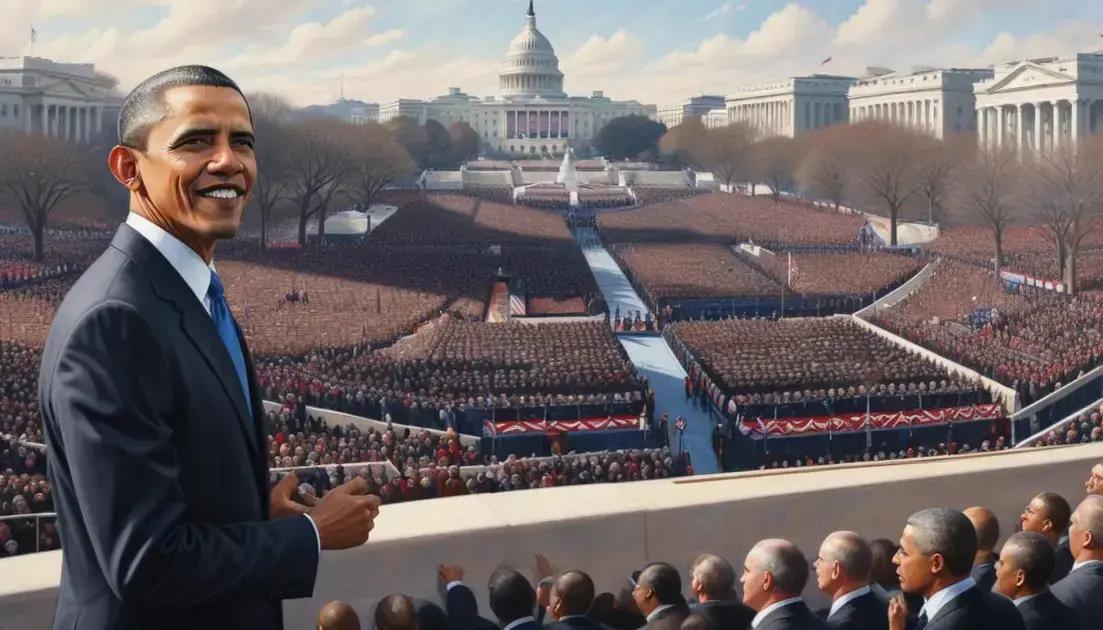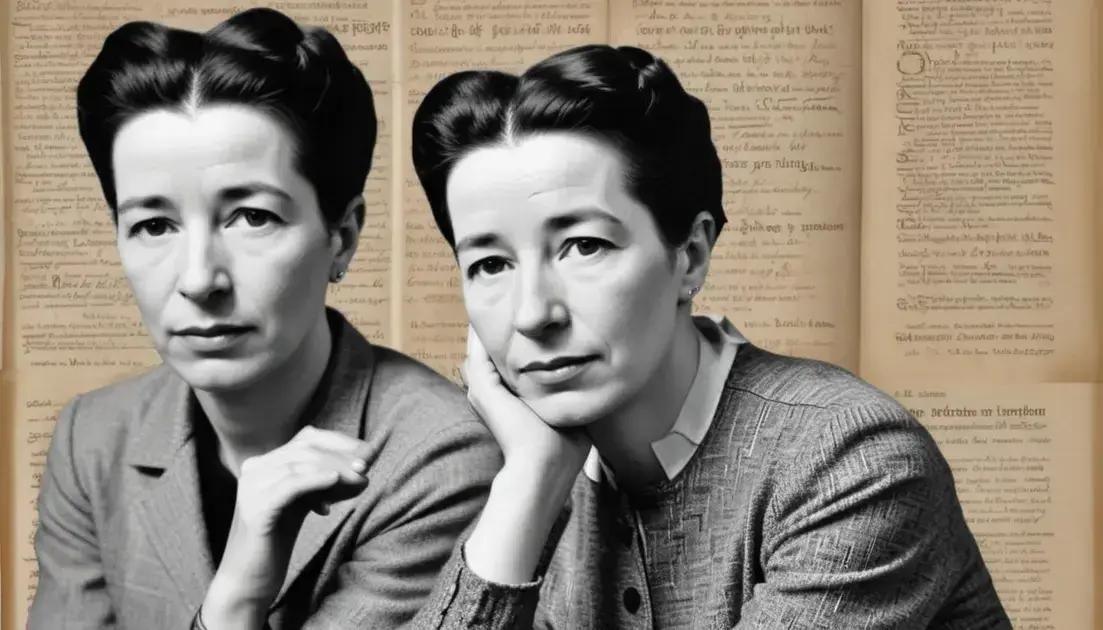
Barack Obama’s Inauguration: The Significance of the First Black President of the USA
Barack Obama’s inauguration marked a historical milestone as he became the first Black president of the United States, significantly impacting civil rights and inspiring countless individuals. His presidency ignited discussions on equality, promoting a sense of unity and hope across diverse communities. The public response was overwhelmingly positive, highlighting the importance of civic engagement and the ability to effect change. Obama’s legacy continues to motivate future generations to strive for equality and justice.
Obama Inauguration was not just another event; it was a historical milestone that reshaped the narrative of leadership and equality. What does this moment mean for you and me?
Significance of the inauguration
The significance of the inauguration cannot be overstated. This event marked a turning point in American history. Barack Obama being the first Black president brought hope to many. It symbolized progress in the ongoing fight for equality.
For years, people dreamed of this moment. His election showed that hard work and determination can lead to change. It inspired countless individuals to believe in their potential.
People gathered in large numbers to witness the inauguration. This display of unity and support highlighted the moment’s importance. It made everyone feel part of something bigger.
Obama’s presidency signaled a change in the political landscape. Many viewed it as a chance to address long-standing issues. Civil rights, healthcare, and education were hot topics during his term. He focused on bringing people together and promoting inclusivity.
The inauguration left a lasting impression, not just in the U.S. but worldwide. It encouraged others who felt marginalized to step forward. It set a new standard for future leaders and represented hope for a more equitable future.
Impact on civil rights
The impact on civil rights during Barack Obama’s presidency was significant. His presidency inspired many to engage in political processes. It showed that change is possible and that everyone can contribute to it.
Obama’s leadership encouraged discussions about race and equality. He made progress in areas like healthcare and education. These advancements aimed to benefit all Americans, especially marginalized groups.
His administration focused on issues like discrimination and voting rights. They sought to ensure that every person had a voice. This was essential for promoting fairness in society.
Moreover, Obama’s presidency sparked conversations about social justice. It brought people together around common goals. Activists and organizations sought to push for further changes.
Many felt empowered to stand up for their rights. His historic election inspired youth and diverse communities. They began to see themselves in positions of leadership, which was crucial for future generations.
Public response and legacy
The public response and legacy of Barack Obama’s inauguration were profound. Many people felt a sense of pride and excitement. For countless Americans, it was a turning point in history.
Social media buzzed with reactions during the event. People shared their thoughts and experiences, creating a sense of community. This was a moment everyone wanted to remember.
Obama’s words inspired many. His message of hope resonated deeply with diverse groups. People from all walks of life felt empowered to believe in change.
The legacy of this moment continues today. It encourages younger generations to support equality and justice. They see what is possible when barriers are broken.
Events like the inauguration often encourage engagement in democracy. Many citizens felt motivated to participate in politics. This boost in civic involvement was crucial for shaping the future.
As time goes on, Obama’s presidency remains a powerful symbol. It reminds us that progress is possible when we work together.
Conclusion
In conclusion, the impact of Barack Obama’s presidency has been significant. His inauguration not only changed the political landscape but also inspired many to believe in their power for change. The focus on civil rights promoted important conversations about equality and justice.
The strong public response to his election showed a longing for progress. It highlighted how crucial it is for everyone to voice their opinions and engage in democracy. This legacy continues to motivate the younger generations.
As we reflect on these milestones, we see that hope and unity can drive real change. Our journey toward equality and understanding is ongoing, and we must work together to achieve it. Obama’s legacy teaches us that with determination, anything is possible.


